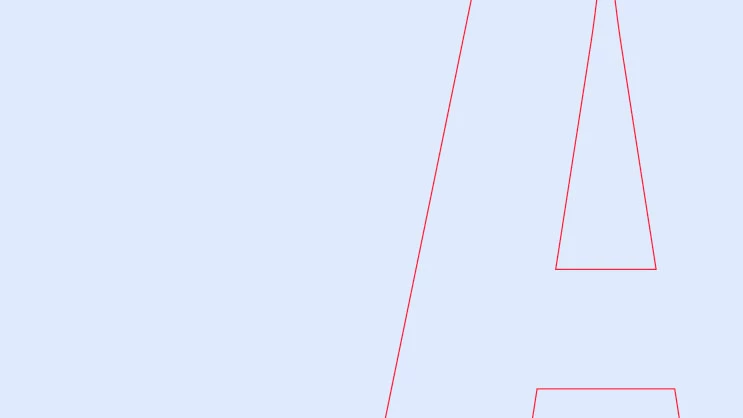
ABBYY FineReader Engine
The most comprehensive AI OCR SDK for software developers

Overview
Features & Benefits

What is ABBYY FineReader Engine?
The ABBYY FineReader Engine software development kit uses AI OCR to allow software developers to create applications that extract textual information from paper documents, images or displays. This best-in-class AI OCR SDK provides your application with excellent text recognition, PDF conversion, and data capture functionalities, enabling it to convert scans into searchable PDF, Word or Excel documents, and access data on photos or screenshots.
Why ABBYY FineReader Engine?
Whether you are a software vendor, system integrator or an enterprise company developing your own IT systems, ABBYY OCR SDK will help you create highly accurate text and data processing applications.
Create desktop or server applications for Windows, Linux or Mac and deploy them in the Cloud or on Virtual Machines. The diverse AI OCR features can add value to applications within many areas, such as DMS, ERP, RPA, insurance, banking, healthcare, legal and machine vision. Available for Windows, Linux, Mac OS and embedded platforms.
On premises or in the cloud.


Highest OCR accuracy

Artificial intelligence and machine learning

Document migration
How ABBYY AI OCR works
- Image import & processing
- Analysis & recognition
- Data export
Image import & processing
The OCR developer kit can receive input from many sources. Images saved as TIFFs, JPEGs, PDFs or other image formats as well as digitally created Office documents can be imported while photographed text or scanned paper documents can be processed directly from the memory. To increase recognition accuracy, the image quality is enhanced during the pre-processing step. The SDK applies a wide range of imaging functions such as image rotation, binarization, de-skewing and others to optimize the image quality.

Data processing
With AI-based algorithms and ABBYY Adaptive Document Recognition Technology (ADRT®), the OCR toolkit analyzes the layout of each individual page as well as structure of the document as a whole. This process defines the areas for text recognition and delivers information about layout and formatting elements for the final document reconstruction at the end of the OCR process. With the highest accuracy, ABBYY FineReader Engine SDK extracts multilingual machine-printed and hand-printed text (OCR, ICR) as well as various other information including, checkmarks (OMR) and barcodes (OBR). By creating their own dictionaries or recognition patterns, the developers can increase the recognition accuracy of specific languages, unusual characters or fonts

Data export
The OCR SDK offers many options for exporting recognition results and different levels of document layout reconstruction. Numerous storage formats are available: text, XML, different types of PDF and PDF/A formats, editable Microsoft® Office documents and other saving formats.

ABBYY AI OCR—customer scenarios

Content services, digital archiving, DMS, ECM

Healthcare applications

Cross-industry applications

Assistive software & education

Robotic Process Automation

Search, eDiscovery and data analysis
Trusted by 10,000+ of the world’s leading companies
See Finereader Engine in action
Initialize FineReader Engine and process documents

How to get started with ABBYY FineReader Engine

How to take advantage of cloud computing powers for document conversion

ABBYY FineReader Engine 12
The most comprehensive AI OCR SDK for software developers

Ready for Intelligent Automation?
How AI-based technologies expand the value of software products
Webinar
Integrate AI-based OCR functionalities into your applications with ABBYY FineReader Engine
ABBYY FineReader Engine 12
The most comprehensive AI OCR SDK for software developers

Ready for Intelligent Automation?
How AI-based technologies expand the value of software products
Webinar
Integrate AI-based OCR functionalities into your applications with ABBYY FineReader Engine

Features & Benefits
Whether you are a software vendor, system integrator or an enterprise company developing your own IT systems, ABBYY OCR SDK will help you create highly accurate text and data processing applications.
Create desktop or server applications for Windows, Linux or Mac and deploy them in the Cloud or on Virtual Machines. The diverse OCR features can add value to applications within many areas, such as DMS, ERP, RPA, insurance, banking, healthcare, legal and machine vision.
Advanced features for developers
Comprehensive set of recognition technologies
Powerful PDF processing tools
Artificial intelligence and machine learning
Support for Cloud and virtual environments
Advanced image pre-processing functions
Recognition profiles for fast implementation
Sample code library
Detailed SDK documentation and support
Compare documents’ function
*Depending on the target operating system, there may be slight differences in the availability and details of some features. Some new features may be implemented in later releases. Please read the leaflets below for detailed information.
FAQ
What is the difference between traditional OCR and AI OCR?
The difference between traditional optical character recognition (OCR) and AI OCR lies primarily in their technology bases, accuracy, flexibility, and learning capabilities. Traditional OCR relies on pattern recognition and template matching, scanning documents pixel by pixel to match text with a predefined set of characters. This method can be less accurate when dealing with complex layouts, varied fonts, and “noisy” or degraded documents. It is also limited in its ability to handle diverse document types and layouts. Additionally, traditional OCR is static and does not improve over time with new data.
In contrast, AI OCR uses artificial intelligence technology—specifically, machine learning and deep learning algorithms—to interpret text by understanding the context and structure of the document. This approach results in significantly higher accuracy, especially with complex layouts, varied fonts, handwriting, and low-quality images. AI OCR is highly adaptable to different document types, formats, and languages, making it a far more flexible solution. Moreover, it is dynamic, continuously learning and improving from processing new documents, which enhances accuracy and efficiency over time. AI OCR provides a more advanced, accurate, and versatile solution for extracting text from diverse and complex documents, thus enhancing productivity and reducing manual effort.
How does AI OCR work?
Artificial intelligence OCR leverages machine learning and deep learning algorithms to accurately recognize and extract text from diverse types of documents. Here’s how it works:
- Image Preprocessing: The document image is first processed to enhance its quality. This step may include noise reduction, binarization (converting grayscale or color images to black and white), and correction of any distortions or skewing.
- Text Detection: AI OCR identifies regions of the image that contain text, distinguishing them from images, graphics, and blank spaces.
- Character Recognition: Using deep learning algorithms, AI OCR recognizes individual characters within the detected text regions. Unlike traditional OCR, which matches characters against a predefined set, AI OCR uses neural networks trained on vast amounts of data to understand various fonts, styles, and handwriting.
- Contextual Understanding: AI OCR interprets the recognized text by considering its context within the document. This means understanding layout specifics, such as paragraphs, tables, and headings, and the relationships between different text elements.
- Language and Grammar Processing: Natural language processing (NLP) techniques are applied to refine the extracted text. The AI can correct errors by considering the grammatical structure and commonly used phrases in the recognized language.
- Continuous Learning: AI OCR systems continuously learn and improve over time. As they process more documents, they become better at recognizing and interpreting text, leading to increased accuracy and efficiency.
What is the difference between AI OCR and intelligent document processing (IDP)?
AI OCR and intelligent document processing (IDP) are both advanced document handling technologies, but they differ significantly in their scope and functionality.
AI OCR focuses on converting text from scanned document images, PDFs, or photos into editable, searchable data using machine learning and deep learning for high accuracy. In contrast, IDP automates entire document processing workflows. Using the text provided by AI OCR as a basis, IDP applies NLP, machine learning regular expressions, and rules to understand the information and extract tagged, meaningful data that can be passed to downstream business applications for informed decision making.
While AI OCR is essential for text extraction, IDP offers a comprehensive solution for transforming unstructured data into actionable insights to streamline business processes. For more information, see OCR vs. IDP: What’s The Difference?
What is the difference between AI OCR and Deep-OCR?
AI OCR and Deep-OCR are both powerful technologies used to convert various documents, images, or scanned text into machine-readable formats. While both serve similar purposes, they operate on distinct methodologies.
AI OCR harnesses a blend of traditional optical character recognition techniques and artificial intelligence algorithms to interpret and extract text from images or documents. It relies on established rules and patterns to achieve accurate results efficiently.
Conversely, Deep-OCR uses deep learning techniques, notably deep neural networks, to recognize and extract text. These models are trained on extensive datasets, enabling them to discern intricate patterns and features directly from the input data, resulting in potentially higher accuracy rates.
While Deep-OCR may offer superior accuracy, it often comes with increased costs and complexity. Implementing and maintaining Deep-OCR solutions typically require significant computational resources and specialized expertise. For many organizations, especially those with budget constraints or limited technical capabilities, the added complexity of Deep-OCR can make it an impractical option.
In contrast, AI OCR provides a reliable and cost-effective solution for text recognition needs. It delivers accurate results while remaining accessible and manageable for organizations of varying sizes and technical proficiencies. By leveraging AI OCR technology, businesses can streamline document processing workflows, enhance data accessibility, and improve overall operational efficiency.
What’s the difference between computer vision and AI OCR?
Computer vision is a broad field of artificial intelligence that focuses on enabling machines to interpret and understand visual information from the physical world. It encompasses a wide range of tasks, including image recognition, object detection, scene understanding, and more. Computer vision algorithms analyze and interpret visual data from images or videos to extract meaningful insights, identify objects or patterns, and make decisions based on that information.
AI OCR is a specialized application within the realm of computer vision. It specifically deals with the recognition and extraction of text from images, scanned documents, and other visual media. AI OCR technology enables machines to identify characters, words, and paragraphs within an image and convert them into editable, searchable text formats. It plays a crucial role in digitizing and extracting information from documents, automating data entry processes, and facilitating text-based searches within digital archives.
Key differences between these two technologies include:
- Scope: Computer vision encompasses a broader set of tasks related to understanding visual data, including but not limited to text recognition. AI OCR, however, focuses specifically on the recognition and extraction of text from images.
- Application: While computer vision algorithms can be applied to various tasks such as object recognition, image classification, and scene understanding, AI OCR is tailored specifically for text recognition and extraction purposes.
- Output: Computer vision algorithms may produce outputs such as object labels, bounding boxes, or semantic segmentation maps, depending on the task. In contrast, AI OCR outputs editable and searchable text representations of the text content within images or documents.
What are the top use cases of AI OCR?
AI OCR technology has a wide range of applications across various industries. Some of the top use cases include:
- Medical Records Digitization: In healthcare, AI OCR streamlines the digitization of medical records, including patient charts, prescriptions, and lab reports. By extracting text from scanned documents, healthcare providers can create searchable digital archives, facilitate information retrieval, and improve patient care coordination.
- Health Insurance Claims Processing: AI OCR automates the processing of health insurance claims by extracting relevant data from claim forms, such as patient information, treatment codes, and billing details. This accelerates claims processing workflows, reduces errors, and enhances reimbursement accuracy for healthcare providers and insurers.
- Accounts Payable Automation: In AP departments, AI OCR automates invoice processing workflows by extracting data from invoices, such as vendor details, invoice numbers, and line item information. This enables faster invoice approval, reduces processing costs, and improves invoice accuracy and compliance.
- Purchase Order Processing: AI OCR enhances supply chain management by automating purchase order processing tasks. After extracting data from purchase orders, such as product descriptions, quantities, and prices, it integrates this information into inventory management systems, enabling efficient order fulfillment and inventory tracking.
- Receipt and Expense Management: AI OCR simplifies receipt and expense management processes by extracting data from receipts and expense reports, such as transaction dates, amounts, and merchant names. This enables businesses to streamline expense tracking, improve financial visibility, and ensure compliance with expense policies.
- Supplier Invoice Verification: In supply chain management, AI OCR verifies supplier invoices by comparing extracted invoice data with purchase order and receipt information. This helps businesses detect discrepancies, prevent over-billing, and ensure accurate payment processing, strengthening supplier relationships and financial control.
- Shipping and Logistics Documentation: AI OCR assists in processing shipping and logistics documentation, such as packing slips, bills of lading, and customs forms. By extracting relevant information from these documents, logistics companies can automate shipment tracking, optimize route planning, and enhance supply chain visibility.
Request a demo today!
Schedule a demo and see how ABBYY intelligent automation can transform the way you work—forever.







